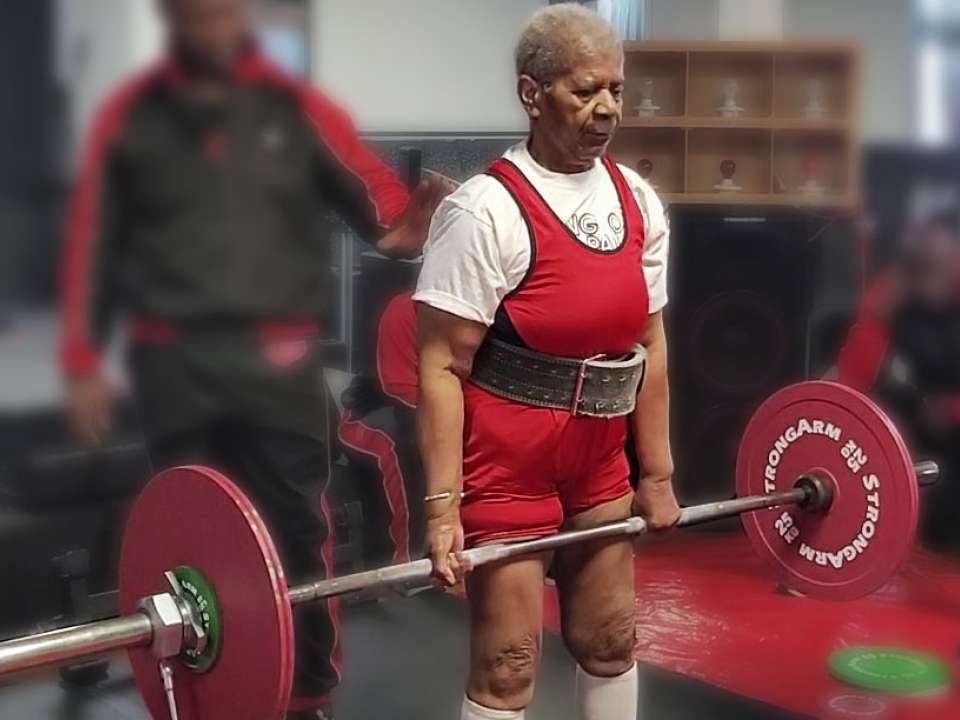
Are you routinely cursing your uterus for plaguing you with unusually heavy periods? Do you have a teen who — deep breath — has recently become sexually active? Whether you need a pap smear, birth control, period pain management or more, a gynecologist can help.
The ins and outs of gynecology can bring up a lot of questions, and understanding this type of specialty care shouldn’t feel daunting or as complicated as a Rubix cube. The TL;DR? If you’re an adult and you haven’t already established care for your reproductive health, it’s time. Here are the answers to your gynecology questions.
What is a gynecologist?
An OB-GYN is an abbreviation for obstetrician-gynecologist.
Obstetrics is a medical specialty that focuses on caring for people during their pregnancies, during childbirth and right after childbirth. Obstetricians are doctors who practice within this specialty.
Gynecology is a medical specialty that focuses on treating conditions specific to the female reproductive system — breasts, vaginas, vulvas, cervix, uterus, uterine tubes (aka fallopian tubes), and ovaries. Gynecologists are the doctors who practice within this specialty.
While obstetricians are the ones who support pregnancies, reproductive health doesn’t always refer to fertility or pregnancy; a gynecologist would be more than happy to help you with any questions you have around family planning.
Gynecologists can also help with cancer screenings, preventive care, surgeries and more.
If you have a complex condition or something that requires a more specific expertise, there’s likely a gynecologist for that, too. There are a few different types of specialties within gynecology, including:
- Urogynecologists, who focus on conditions related to pelvic floor dysfunction.
- Gynecologic oncologists, who diagnose and treat cancers and other complex conditions of the female reproductive system.
- Pediatric gynecologists, who treat gynecologic conditions for children and teens.
- Reproductive endocrinology and infertility, an OB-GYN who focuses on hormone and fertility issues, and can be helpful with preconception counseling.
- Maternal fetal medicine specialist, an OB-GYN who supports you with high-risk pregnancies and can also be helpful with preconception counseling.
- Complex family planning, a specialist who focuses on contraception, pregnancy loss, abortion care and helps you meet your reproductive goals.
So, how is a gynecologist different from a primary care doctor?
While a gynecologist oversees your reproductive system, a primary care doctor is there for your overall health, which typically includes your annual screenings, vaccinations to physical exams. A gynecologist doesn’t replace that role.
In fact, primary care doctors can do a lot of your routine gynecological care, including treating urinary tract infections and testing for sexually transmitted diseases, in addition to initial workups, including ultrasounds or biopsies, for more serious conditions.
“If they find something like a cyst or a polyp, they’ll send you to an OB-GYN to remove it or talk next steps,” says Dr. Vicki Chiaro, a gynecologist at UW Medical Center – Northwest.
What should I expect at my first gynecologic visit?
Before your visit, take a deep breath. For many people, talking about what goes on ... down there can bring up feelings of shame, anxiety or general discomfort. This is completely normal, and to be expected on your first visit. Your gynecologist knows this and will do what they can to make sure you’re as comfortable as possible during your appointment.
“I tell patients all the time how normal it is to be nervous about a gynecologic exam,” says Chiaro. “It’s intimate, and it can feel scary.”
Here are some of things you can expect to go over during your appointment:
Physical exam
During the visit, you can expect the gynecologist to ask general questions about your family history and your menstrual cycle, in addition to a general physical exam.
You may not need a pelvic exam during your first visit to the gynecologist unless you’re experiencing heavy bleeding or abdominal pain — so don't worry about the horror stories your friends have spread about the dreaded speculum, a medical instrument that makes it easier for your doctor to see inside your vagina (plus, when it’s time, your gynecologist can work with you so it’s not that bad).
Sexual health
Your gynecologist will also ask if you’re sexually active, and if so, they might recommend screenings for sexually transmitted infections. Talking about sex can be awkward, but your gynecologist is there to remind you that it’s completely normal. They do these types of tests all the time, and there is no shame in being sexually active or contracting an infection. Be as honest as you can with your doctor so that nothing is missed.
If you’re past age 21, it’s time to start getting pap tests to screen for HPV and cervical cancer. You’ll need to get a pap test every three years until you’re 29, and every five years from age 30 to 65, which means it’s definitely important to establish care with a gynecologist that you love and feel comfortable with.
Your periods
Also, painful periods aren’t normal — if you’re having periods that make it hard for you to complete your daily tasks, let your gynecologist know at your visit.
Most importantly, Chiaro says that you as the patient are always in charge. If anything about an exam is uncomfortable, or if there’s something you don’t understand, let your gynecologist know.
“I’ll ask my patients to give me a hand signal so that I know to stop what I am doing, make an adjustment or simply pause to answer a question,” she says.
What else can a gynecologist help you with?
Once you get the initial visit out of the way, you’ll hopefully have a better idea of what to expect moving forward. After you and your gynecologist determine what’s needed for your care plan, if anything, it’ll determine when your next appointment will be, how often you should visit your doctor and any red flags to look for.
You may talk about some of these topics at your first appointment, but if not, remember that your gynecologist is here for you to help treat a variety of conditions.
Pelvic Health
In addition to staying on top of your pap tests and sexual health, gynecologists can address concerns about general pelvic or genital issues.
Have a troublesome yeast infection or a pesky urinary tract infection? Fibroids, polycystic ovary syndrome or endometriosis? Your gynecologist can help treat these uncomfortable conditions and address the root cause, so they don’t recur.
Cancer care and prevention
In addition to pap smears to test for HPV, your gynecologist can give you breast exams and mammograms (typically when you hit age 40) and perform biopsies to test for other cancers such as uterine or ovarian cancer.
Most people don’t love the idea of getting any of these preventive screenings, but remember, it’s a crucial part of your healthcare. It may feel uncomfortable, or maybe unimportant if you don’t have symptoms or a family history, but don’t put it off.
“It is so important to have reproductive health care for disease prevention, such as cervical cancer,” says Chiaro. “It can help improve your quality of life.”
Birth control and family planning
Chiaro also says it’s important to have a gynecologist you trust when it comes to family planning, so that you have someone to provide support around birth control or fertility options.
Need birth control options such as the pill or an IUD? If you’re wondering what your options are for fertility treatments, they can chat you through the pros and cons of your options and help create a plan that works best for you.
Menopause
Are you in perimenopause or postmenopausal? You still need a gynecologist during this time. A gynecologist can help you manage your hormones to make your periods more regular and manage your moods and other pre- and post-menopausal symptoms.
When can you go to your primary care doctor for gynecological care?
Not everyone has quick and easy access to a gynecologist. If you already have a primary care doctor, it’s completely fine to see them for basic gynecologic needs. In fact, depending on where you live, it might be recommended to start with primary care if access to gynecologists is limited.
"It’s never wrong to start with your primary care doctor,” says Dr. Amanda Carnes, an OB-GYN resident at Harborview Medical Center. “The exception might be for an emergent or urgent condition, such as heavy bleeding, severe anemia or any other symptoms that might require a visit to urgent care or the ER. Typically, then, they’ll contact gynecology straight away.”
If you want to see someone who only does reproductive health as your primary care person, Chiaro recommends seeing a women’s nurse health practitioner. “They can do exams and treat most gynecologic conditions. That’s an option if you’re not talking with your primary care doctor about it.”
None of this is black-and-white — sometimes, it may be more appropriate or accessible to go directly to an OB-GYN for care, or it may be easier to go to a primary care doctor. Don’t worry; both OB-GYNs and primary care doctors are prepared to answer these questions and send you in the right direction.
Nerves are normal, but your comfort is a priority
It’s normal to feel anxious about what to expect at your appointment. Remember that your doctor is there for you — if anything feels uncomfortable during the process, let your gynecologist know and they’ll work with you to make sure you feel safe and heard during the process.
“Ultimately, I love helping patients get through these visits because it can be very empowering for them,” says Chiaro. “There is a lot of opportunity to learn about your own body and to know what is and is not normal, so you know when to seek care.”
And remember, prioritizing all aspects of your health is an act of self-care, so don’t put off scheduling that appointment with a gynecologist if it’s time — and get yourself a well-deserved treat after the appointment, too.

 Healthy ideas for your inbox
Healthy ideas for your inbox





